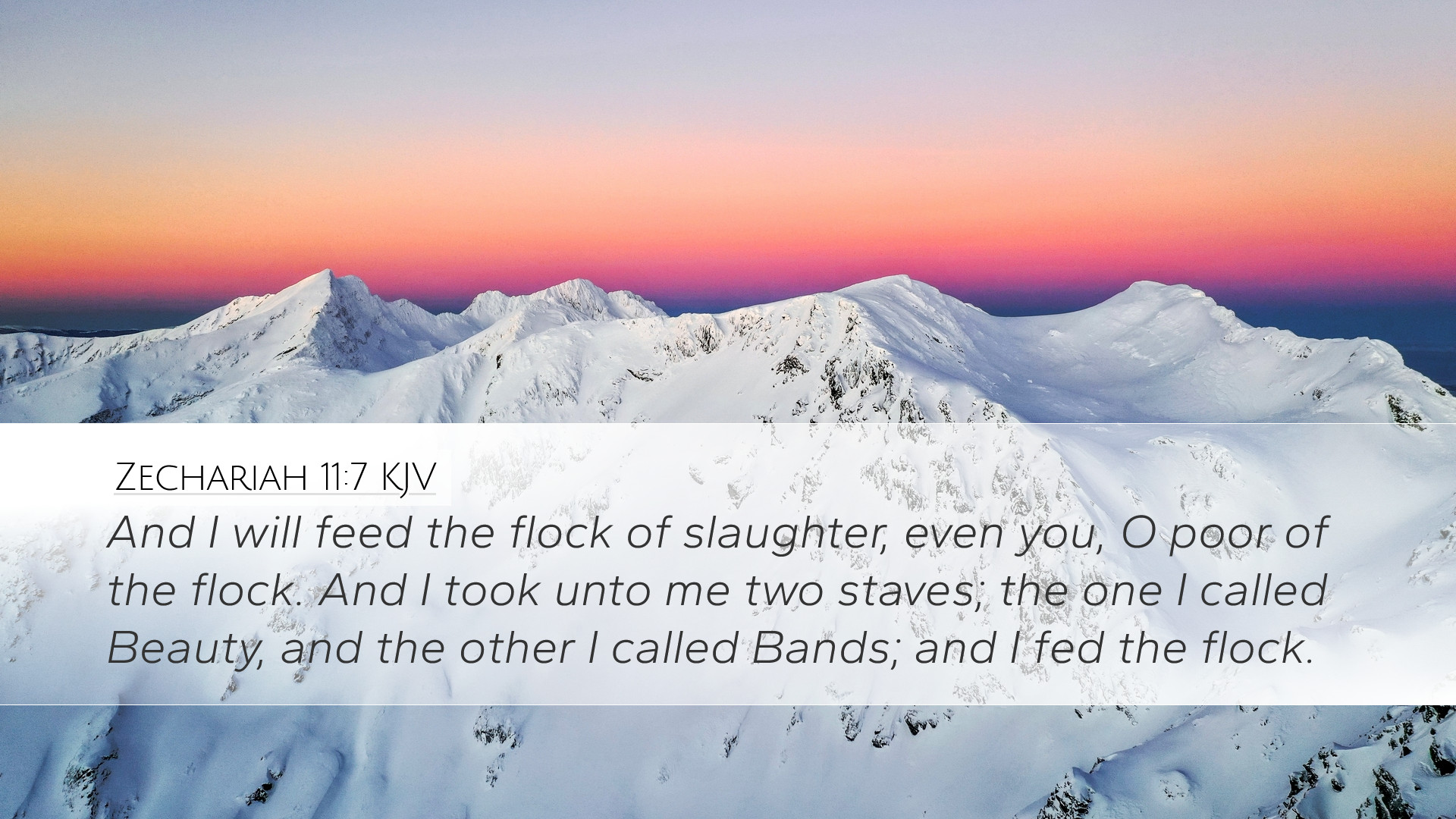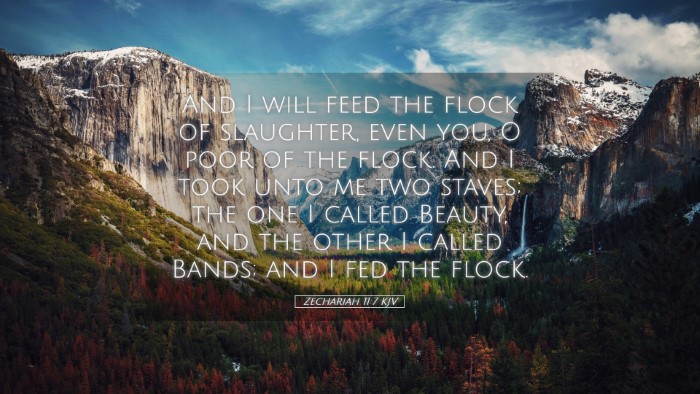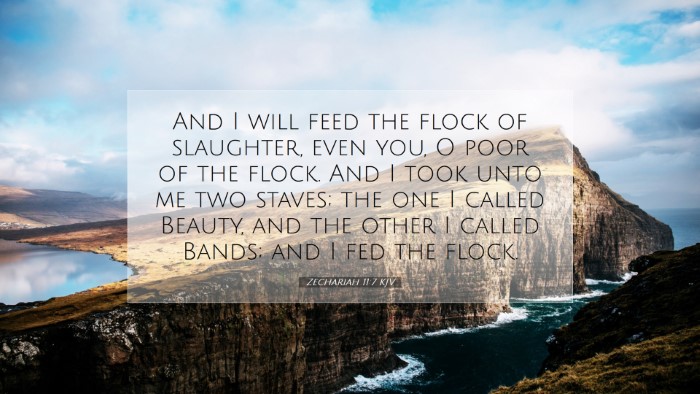Old Testament
Genesis Exodus Leviticus Numbers Deuteronomy Joshua Judges Ruth 1 Samuel 2 Samuel 1 Kings 2 Kings 1 Chronicles 2 Chronicles Ezra Nehemiah Esther Job Psalms Proverbs Ecclesiastes Song of Solomon Isaiah Jeremiah Lamentations Ezekiel Daniel Hosea Joel Amos Obadiah Jonah Micah Nahum Habakkuk Zephaniah Haggai Zechariah MalachiZechariah 11:7
Zechariah 11:7 KJV
And I will feed the flock of slaughter, even you, O poor of the flock. And I took unto me two staves; the one I called Beauty, and the other I called Bands; and I fed the flock.
Zechariah 11:7 Bible Commentary
Commentary on Zechariah 11:7
Zechariah 11:7 states: "So I fed the flock of slaughter, even you, O poor of the flock. And I took unto me two staves; the one I called Beauty, and the other I called Bands; and I fed the flock."
Contextual Background
The book of Zechariah, one of the Minor Prophets, addresses the post-exilic community of Israel. It serves to encourage and exhort them in their covenant relationship with God and to look forward to the messianic future. Chapter 11 reveals profound insights into the themes of leadership, judgment, and God's providence.
Exegesis of the Verse
This verse unveils the deep emotions of the prophet as he enacts a symbolic representation of God's dealings with Israel. The imagery of a flock epitomizes the people of Israel, emphasizing their vulnerability and the judgment that is impending upon them.
Insights from Matthew Henry
According to Matthew Henry, the designation "the flock of slaughter" refers to the people who are marked for destruction due to their profound rebellion against God. This phrase carries with it a connotation of impending judgment, wherein the shepherd's duty becomes increasingly arduous due to the prevailing apostasy among the flock.
Henry elaborates that the "poor of the flock" indicates a remnant—those who are faithful amid widespread corruption. These believers are shepherded with care and compassion, reflecting God's mercy towards His true followers.
Insights from Albert Barnes
Albert Barnes comments on the two staves mentioned in the verse. He explains that the staff represents authority and guidance. The names "Beauty" and "Bands" have particular significance; Beauty refers to the favor and grace of God, while Bands indicates unity and binding together of the faithful.
Barnes notes that the imagery suggests that true leadership occurs through divine appointment, whereby the faithful shepherds (under-shepherds) care for the flock with divine guidance. This also brings to light a critique of the spiritual leaders of Israel during Zechariah’s time, who had failed in their responsibilities.
Insights from Adam Clarke
Adam Clarke discusses the notion of shepherding the flock as a divine task, linking it to Christ, who is the ultimate Good Shepherd. Clarke stresses that the phrase "I fed the flock" symbolizes the essential care and nurturing which the Good Shepherd provides to His people.
Clarke also emphasizes the disruptive realities faced by Zechariah as a true prophet. He points out that the faithful shepherds often shepherd the flock toward both physical and spiritual sustenance while facing hostility and rejection. This cycle reflects the challenges of sustaining a faithful community amidst moral decay.
Theological Reflections
- God's Sovereignty: The text emphasizes God's sovereignty and His active role in shepherding His people. The imagery of feeding represents His commitment to nurture and protect even when judgement is necessary.
- The Role of the Shepherd: The dual staff symbols remind us of the necessity of faithful leadership in the church today. True shepherds must embody both grace (Beauty) and unity (Bands) to nurture the flock.
- The Remnant Principle: The mention of the "poor of the flock" introduces the underlying theme of a remnant—faithful followers sustained by God's grace amidst a larger context of disobedience.
- Messianic Foreshadowing: This verse subtly points to Christ, illustrating how He fulfills the role of Shepherd with unmatched beauty and a commitment to binding together those who are lost.
Conclusion
Zechariah 11:7 provides a profound reflection on God's relationships with His people, showcasing themes of care, leadership, judgment, and mercy. For pastors, students, theologians, and scholars, it presents a rich tapestry from which to glean insights relevant to church leadership and the nature of divine love toward the faithful.
In reflecting on this verse, readers are encouraged to examine their roles as leaders within their communities and to recognize the weight of their responsibilities to nurture and guide in accordance with God's will.


